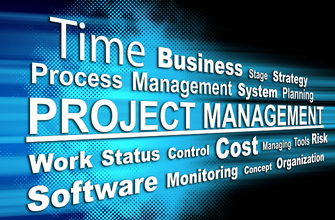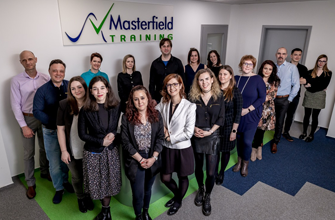139 500 HUF + VAT (365 EUR + VAT)
Programming Basics Course - Dates and application
First training day: 24 November 2025, Further training days: 25., 26., 27.
139 500 HUF + VAT (365 EUR + VAT)
Applying for closed-group training
Application without a date
Learn the basics of programming and start developing your own applications! You'll master key languages and tools, as well as the fundamentals of algorithms and debugging. By the end of the course, you'll be able to create simple programs and write stable, reliable code. Perfect for launching an IT career or expanding your existing knowledge.
Anyone curious about coding, looking to develop practical tech skills, or aiming to enhance their problem-solving abilities—whether you're starting from scratch, shifting careers, or simply exploring new opportunities.
Our training aims to enable anyone without any previous programming knowledge to join our language-specific foundation courses (Java, C#, Python, Perl, etc.).
- Basic computer skills
The Programming Basics Course introduces you to the world of software development, helping you understand the logic and fundamental concepts of programming. It provides an overview of different programming languages, their applications, and the structure and operation of code. You will learn about control structures, modular programming, basic algorithms, and error handling. The tools and methods covered in the course provide a solid foundation for advancing in software development or gaining a better understanding of IT systems. After the course, you will have such a comprehensive knowledge of programming that you will be able to dive deeper into a programming language of your choice!

Main topics:
-
Steps of Program Creation – Learn about different programming languages, development environments, code compilation, execution frameworks, and debugging techniques.
-
Structure and Main Parts of Programs – Understand fundamental coding elements like instructions, variables, data types, operators, input/output handling, and arrays.
-
Control Structures – Master sequential execution, conditional statements, loops, and techniques to control program flow.
-
Modular Programming – Structure code into reusable units using modules, functions, procedures, and parameter handling.
-
Algorithms – Gain essential problem-solving skills, including searching, sorting, selection, and aggregation methods.
-
Error Handling and Exception Management – Identify different error types, apply defensive programming, and use structured exception handling.
-
Basics of Object-Oriented Programming (OOP) – Explore OOP principles, including classes, objects, inheritance, and encapsulation.
This course is not programming language-specific, we practice several known languages to ensure you gain a broad knowledge.
COURSE OUTLINE:
1. STEPS FOR PROGRAMME DESIGN
1.1. Types of programming languages
1.2. Purpose of programming languages
1.3. Interface of applications
1.4. Programming paradigms
1.5. Source code, machine code
1.6. Programme code editors: UltraEdit, Notepad++ etc.
1.7. Integrated Development Environment (IDE) tasks (Eclipse, NetBeans, Visual Studio, PyCharm)
1.8. Concept of a project
1.9. Compilation and linking
1.10. Compiler and interpreter
1.11. Using the command line for compilation
1.12. Operation of running frameworks (Java VM, .NET)
1.13. Scope of software testing
1.14. Using Debug for debugging
2. STRUCTURE AND MAIN PARTS OF PROGRAMMES
2.1. Concept of statement
2.2. Statement block
2.3. Start and end of programmes
2.4. Remarks
2.5. Operators
2.6. Role of data types in language
2.7. Type conversion
2.8. Using variables
2.9. Libraries
2.10. Input and output operations
2.11. Constants
2.12. Complex types
2.13. Using blocks
3. CONTROL STRUCTURES
3.1. Sequential statements
3.2. Structure of logical expressions
3.3. Complex logical expressions
3.4. Branches (if, else)
3.5. Multiway branching (switch, case)
3.6. Loops
3.6.1. Counting loops (for, for each)
3.6.2. Pre-test loops (while)
3.6.3. Post-test loops (repeat-until)
3.6.4. Breaking loops (break, continue)
3.7. Jumping in the code (goto)
3.8. Ending programme execution (return, exit)
4. MODULAR PROGRAMMING
4.1. Concept of unit (unit, component)
4.2. Concept of module (module, package, library)
4.3. Relationships between modules
4.4. Procedures
4.5. Functions
4.6. Declaration and definition
4.7. Return from call, return value
4.8. Parameters
4.9. Standard procedures and functions
5. ALGORITHMS
5.1. Deciding
5.2. Searches (linear, binary)
5.3. Selecting
5.4. Summary
5.5. Finding extremes
5.6. Ordering methods (selection, bubble)
5.7. Separating
5.8. Intersection
5.9. Union
6. ERROR-HANDLING, EXCEPTION-HANDLING
6.1. Types of errors (compile, run)
6.2. Concept of defensive programming
6.3. Status of programme running
6.4. Objectives of debugging
6.5. Concept of exception
6.6. Simplified debugging
6.7. Exception handling with separate block (try-catch)
7. BASICS OF OBJECT-ORIENTED PROGRAMMING
7.1. The concept and benefits of object-oriented programming
7.2. Concepts of object, class, interface and instance
7.3. Elements of a class: attributes and methods
7.4. Special methods: constructor and destructor
7.5. Visibility
7.6. Inheritance
Trainers
Do you have any questions about the training?




























Rendkívül jól felkészült oktatóhoz volt szerencsénk. Érthető volt, összeszedett, kommunikatív. Köszönöm, hogy itt lehettem.
Fekete Emese Melinda
T-SYSTEMS MAGYARORSZÁG ZRT.